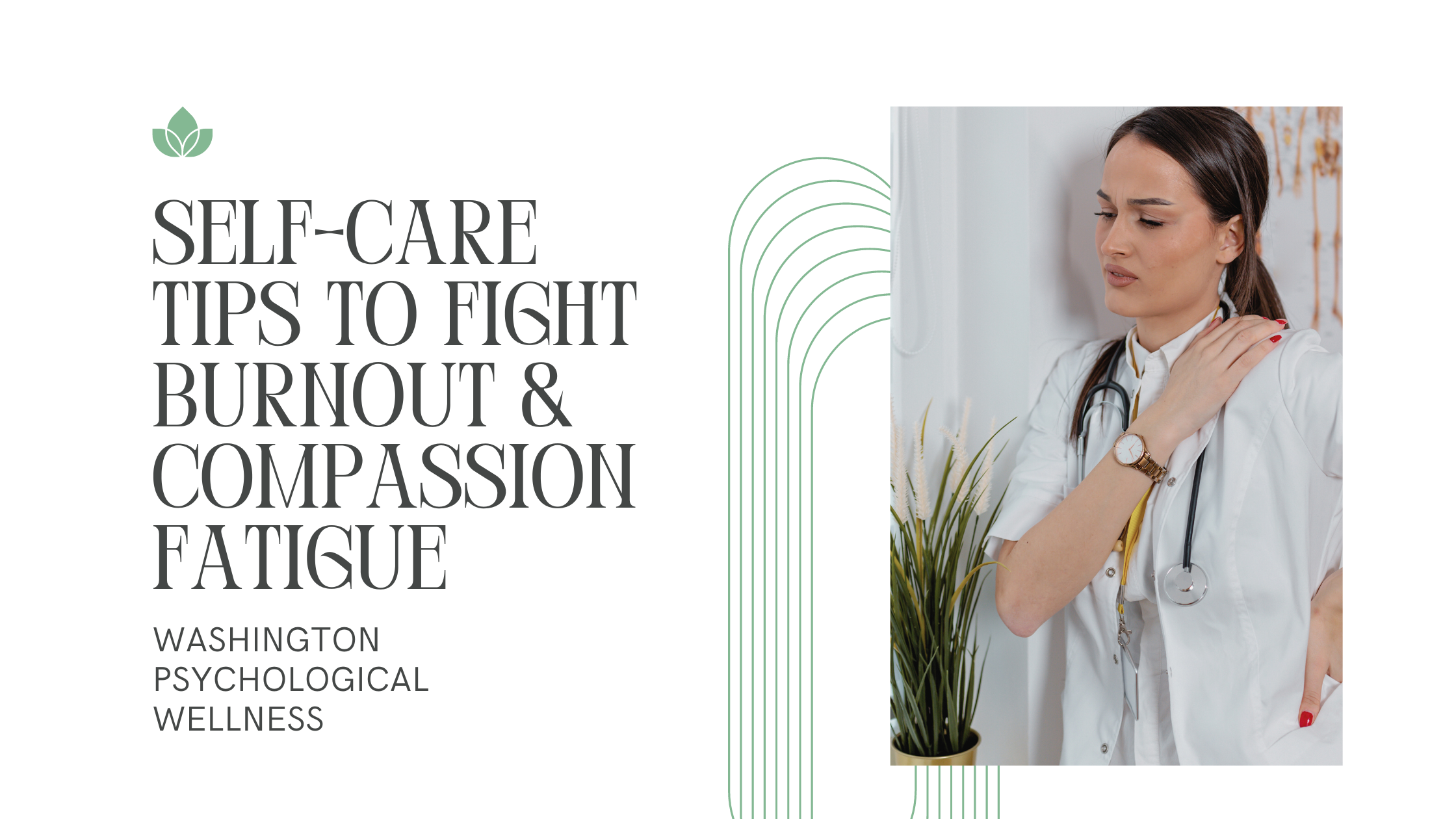
Self-Care Tips to Fight Burnout and Compassion Fatigue
Burnout is a unique form of stress that caregivers and professionals often encounter. It manifests as a sense of diminished accomplishment and exhaustion, both physically and emotionally. Compassion fatigue entails a higher level of stress and weariness resulting from helping others who are going through emotional or physical pain. This is commonly known as the “cost of caring.” Individuals experiencing compassion fatigue also exhibit a notable decrease in their ability to empathize with others. Compassion fatigue is considered a type of secondary traumatic stress that emerges when assisting or desiring to assist those in need.
While burnout typically develops gradually over time, compassion fatigue can unexpectedly arise without warning signs. Professionals and caregivers affected by compassion fatigue may react to situations differently compared to others due to a decline in their “compassion skills.” It is common for individuals in helping professions to experience some degree of burnout or compassion fatigue throughout their lives. If you are experiencing burnout and compassion fatigue, it is time to make a change to improve your life.
There are self-care tips you can take to help fight burnout and compassion fatigue:
Prioritize Self-Care
Make self-care a non-negotiable part of your routine. Set aside time for activities that rejuvenate and recharge you, such as exercise, hobbies, relaxation techniques, or spending time with loved ones.
Establish Boundaries
Learn to set clear boundaries in your personal and professional life. Say no to excessive commitments and avoid overextending yourself. Prioritize your own well-being, and don’t hesitate to ask for help or delegate tasks when needed.
Practice Stress Management Techniques
Explore stress-reducing techniques that work for you, such as deep breathing exercises, meditation, yoga, or mindfulness. These practices can help reduce stress levels and promote emotional well-being.
Seek Support
Don’t hesitate to reach out for help when needed. Connect with trusted friends, family, or colleagues who can provide a listening ear or offer guidance. Consider joining support groups or seeking professional counseling or therapy if necessary.
Take Breaks and Recharge
Allow yourself regular breaks throughout the day, especially during intense or emotionally demanding periods. Engage in activities that help you relax and recharge, such as taking walks, listening to music, or practicing hobbies.
Engage in Self-Reflection
Take time to reflect on your emotions, needs, and motivations. Understand your limits and learn to recognize signs of burnout or compassion fatigue. Regular self-reflection can help you identify areas that require attention and adjustment.Communication extends beyond words. Non-verbal cues, such as body language and tone of voice, can significantly impact your message. For example, when engaging with difficult co-workers, pay attention to your non-verbal communication, ensuring that it aligns with your intended message. Similarly, be mindful of their non-verbal cues, as they can provide valuable insights into their emotions and thoughts.
Take Care Of Your Physical Health
Pay attention to your physical well-being by getting adequate sleep, maintaining a balanced diet, and engaging in regular exercise. Taking care of your body supports overall resilience and helps combat the effects of burnout and compassion fatigue.
Need More Self-Care Tips to Fight Burnout and Compassion Fatique? Contact Washington Psychological Wellness.
Remember, self-care is an ongoing practice. Prioritizing your well-being and regularly incorporating these strategies into your routine to combat burnout and compassion fatigue is essential. Remember that caring for yourself is not selfish but necessary to maintain your physical, emotional, and mental health. By nurturing yourself, you not only benefit personally but also enhance your ability to provide compassionate care and support to others. So, make self-care a priority, and let it be a cornerstone of your journey towards resilience, fulfillment, and a healthier, more balanced life.
